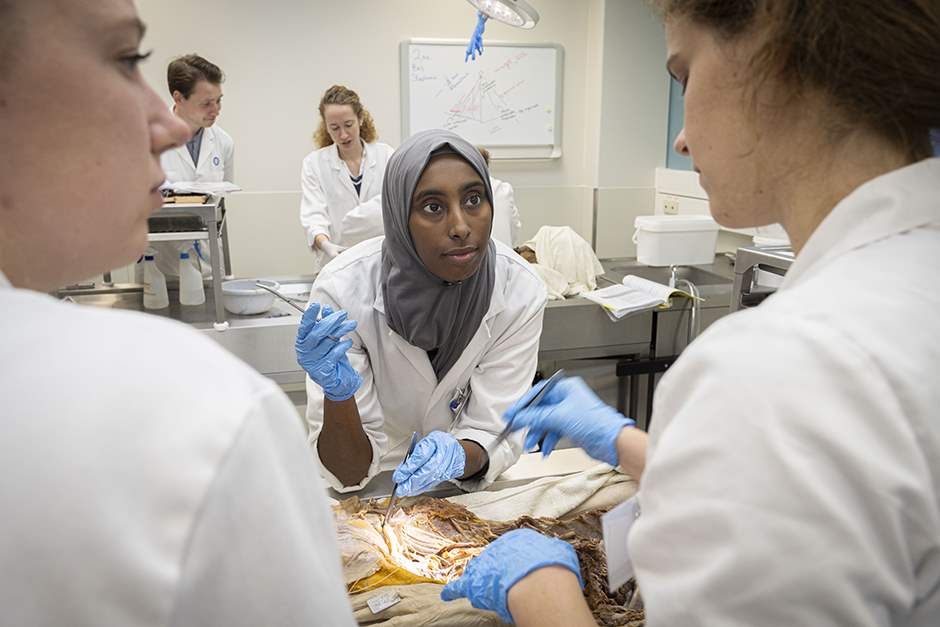Interdisciplinary en inter-professional education
In 2023 we worked on the (continued) development of inter-professional and interdisciplinary education. Some of our worthwhile initiatives:

Rounding off the first year of the new bachelor and master program
In 2023 we rounded off the first year of the new interdisciplinary bachelor in Care, Health and Society , which is offered by the faculties of Medicine, Veterinary Medicine, and Beta Sciences at Utrecht University. The first 15 students (out of 24 who entered) in the new Medical Humanities master’s program received their degree in 2023. This interdisciplinary master’s program kicked off in September 2022 and is offered by the faculties of Medicine and Humanities. In September 2023, 44 students enrolled for the master’s, which was almost double the amount of the first year that the course ran.
With these new courses we are joining the Utrecht University in addressing society’s demand for professionals in humane and veterinary healthcare who are trained differently. The interdisciplinary training in these programs will make future professionals particularly well equipped to tackle health challenges in an innovative, interdisciplinary way and with knowledge of modern technologies. The new training programs therefore fit in perfectly with The New Utrecht School.
Inter-professional education in the regular curriculum
We also continued to integrate inter-professional education further in the regular curriculum. Students in Pharmacy, Nursing and Medicine (1st year master’s) are for instance now studying inter-professionally in the Geriatrics section. Another example is the development and implementation of a new optional course for inter-professional cooperation in Nutrition and Lifestyle together with Nursing (HU, 3rd year) and Medicine (2nd year bachelor).
Innovative, interdisciplinary Women’s Heart Challenge
In October 2023, we organized an innovative, interdisciplinary Women’s Heart Challenge for students in Medicine and Biomedical Sciences. Together with researchers, doctors, and patients, students reflected on the rare heart disease SCAD (Spontaneous Coronary Artery Dissection). Students then carried out the best idea in practice at UMC Utrecht.